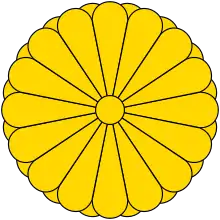Satori generation
Satori generation (さとり世代) is a Japanese language neologism used to describe young Japanese who have seemingly achieved the Buddhist enlightened state free from material desires but who have in reality given up ambition and hope due to macro-economic trends.[1] The term was coined around 2010.[2] The Satori generation are not interested in earning money, career advancement, and conspicuous consumption, or even travel, hobbies and romantic relationships; their alcohol consumption is far lower than Japanese of earlier generations.[2] They live in a period of Waithood and are NEET, parasite singles, freeters or hikikomori. The Satori generation in Japan is roughly equivalent to the Sampo generation in Korea,[3] and is somewhat similar to the Strawberry generation in Taiwan.

References
- The Satori generation adbusters.org
- Michael Hoffman, Life is too short for an undesirable satori Japan Times, 2013/03/31
- Beatrix Tan, SATORI GENERATION: THE NEW-AGE ENLIGHTENED STOICS OF JAPAN RGNN, November 23, 2015
